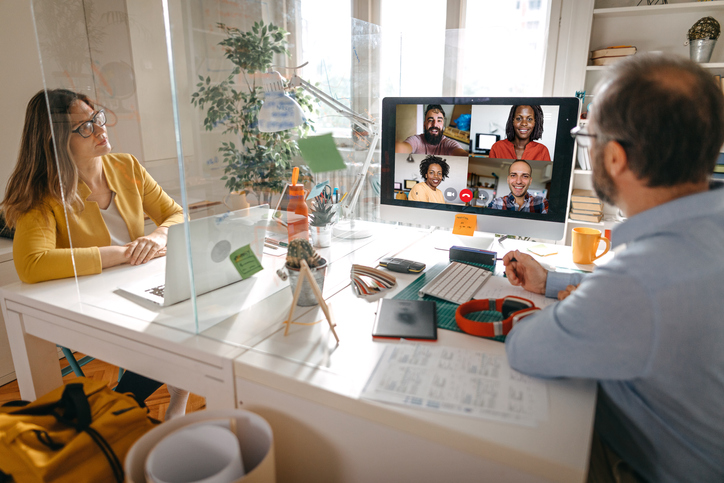Worldwide, remote working has resulted in a shift in workplace attitudes and expectations, including a boom in digital skills for employees and a demand for more emotionally intelligent leaders, new research from the Adecco Group has found.
The global HR company surveyed 8,000 employees from more than eight countries – including Australia – and found six out of 10 felt they had improved their “tech knowhow” with 69% eager for further digital upskilling.
Adecco Group CEO Alain Dehaze said a return to the old “normal” was not likely given the “sudden and dramatic change” in the workplace landscape since the pandemic.
“It has accelerated emerging trends such as flexible working, high-EQ leadership, and re-skilling, to the point where they are now fundamental to organisational success,” he said.
“As we step into the new era of work, now is the time to establish better norms that will enable a holistically healthy, productive and inclusive workforce into the future.”
Canberra Business School lecturer in entrepreneurship and innovation, Diane Phillips, said current workplace arrangements were a perfect example of “not letting a good crisis go to waste”.
“A crisis changes so many things and while we do have to consider different personalities and learning styles, anecdotally, productivity has gone up,” she said.
“There is no time wasting, meetings are more efficient – maybe it’s because of an expectation to demonstrate trustworthiness.
“But we have only scratched the surface of what could change.”
Ms Phillips said flexible and remote learning was already trending before the pandemic, but the real surprise had been the swing away from neo-liberalism, towards kindness.
“It’s been missing for a while now, but it does feel like it’s balancing back,” she said.
“My boss now starts our meetings by asking if everyone is alright and ends it by telling everyone to stay safe.
“Concerns for people are genuine.”
Emotional intelligence has emerged as a sought-after business skill, with 28% of those questioned reporting a worsened mental wellbeing due to the pandemic and only one in 10 rating their managers highly on their ability to support their emotional health.
Eight in 10 (80% of) employees believed their employer was responsible for ensuring a better working world post-COVID.
University of Canberra Assistant Professor of Psychology, Dr Vivienne Lewis, said although some leaders were naturally emotionally intelligent, it was also up to employees to be assertive about their needs.
“You can teach someone how to recognise behaviours and look out for warning signs that people are overwhelmed or burnt out,” she said.
“It’s about realising people are anxious, depressed or struggling and checking in with them.
“Work/life balance is crucial to our mental health and wellbeing.
“And by that, I mean enjoying work, feeling productive, making a contribution, and having a manageable workload.
“To get it, you need to follow a routine, start and finish work at the same time, take regular breaks and don’t allow your workdays to blow out.
“We all need time for recreation with family and friends to enjoy a balanced life,” Dr Lewis said.
For more news stories:



